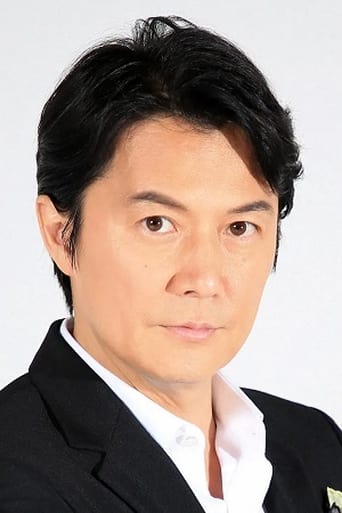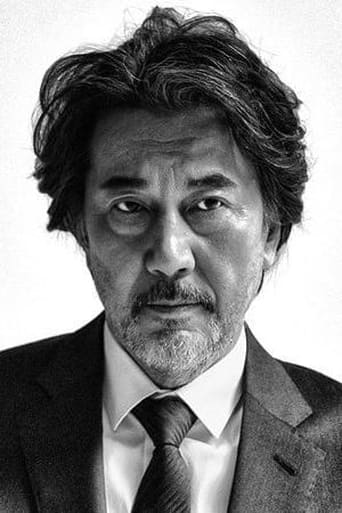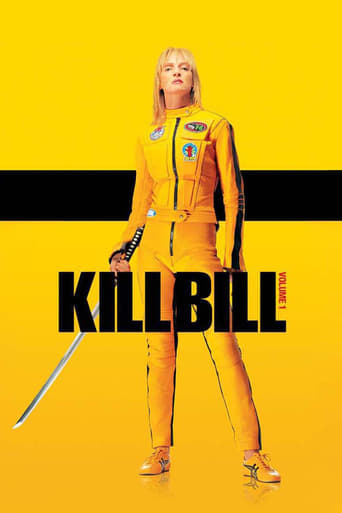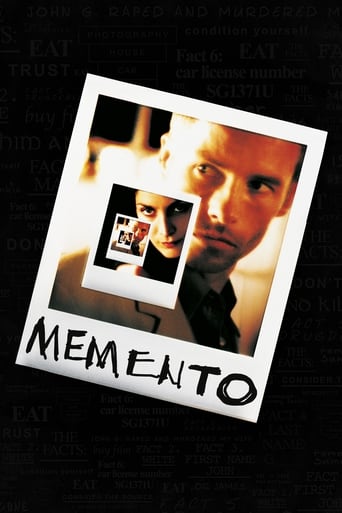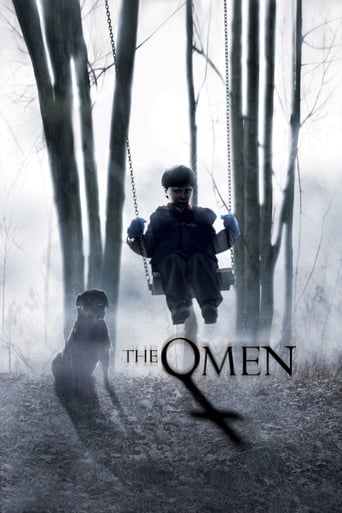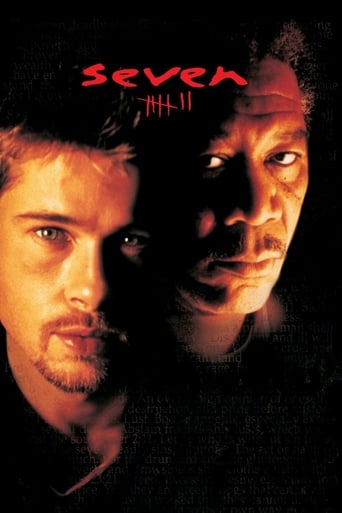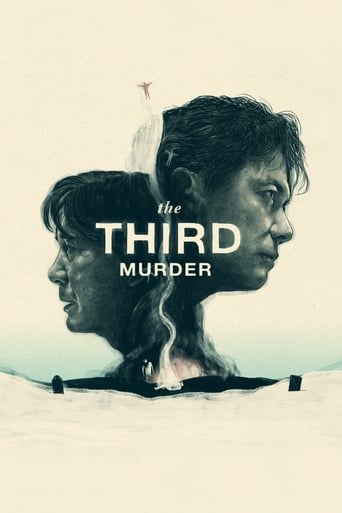
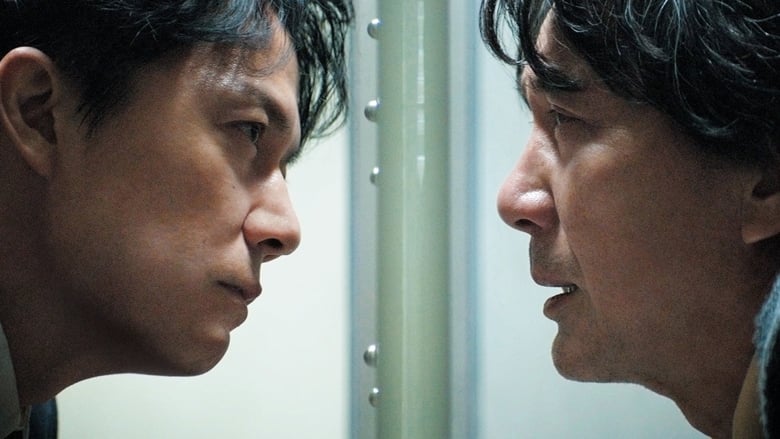
The Third Murder (2018)
A lawyer tasked with defending a robbery-and-murder suspect begins developing doubts about what truly happened.
Watch Trailer
Cast


Similar titles
Reviews
Some movies just grab you. nothing happens here. it's very quiet. some lawyers investigating a murder. that's it. several folks walked out. I loved it. your move.
An experienced lawyer undertakes to defend a man accused of brutal murder. Everything is clear, like a day. The accused confessed and in the distant past had already passed through a similar case. However, intuition tells the lawyer that in this case everything is too smooth ...The new work of Hirokazu Koreda (After the Storm, Son in the Father, Miracle, After Life) is fascinating at first sight and does not let go. The producer, a dog who has eaten on meditative festival pictures, delays into the "mainstream" narrative easily and unobtrusively. The tape, although it has a number of contingent plot surprises, uses the standard detective canvas only as a background for deeper reflections. Each dialogue or phrase dropped carries a semantic question, the answer to which the viewer is trying to find together with the director.Despite the seemingly outward asceticism of the production, the tape does not look simple at all. Excellent camera work Mikiya Takimoto, with whom the director worked on the paintings "Son in the Father" and "Diary of Umimati, literally erases the boundaries of reality. And the music of Ludovico Einaudi ("1 + 1", "Strange crime") harmoniously complements the magic cinema.The lead actor's duet is incomparable. Conversations and transformations of the "lawyer" Masaharu Fukuyama (John Woo's "Hunting for the person", "Suspect X", "Son in the father", "Summer formula", "Sensation!") And the suspect Koji Yakusho ("The Emperor in August", " Tree of the Cicadas "," Thirst "," Harakiri "and" 13 murderers "Takashi Miike) are built and lived filigree. In the background, the charming Kotaro Yoshida (The Clinic of Love, The Woman Who Loves Lies, the Doric of Sentimental Tokyo) looked good as a colleague in a law firm.Summarizing: definitely, a heap of awards of "the Japanese Film Academy" the tape has deserved quite deservedly. Excellent directing, an indescribable mood and parable motives in a deceptively detective shell. Movies of great style.
The murderer in this film has killed twice. So, why is the film called 'The Third Murder?' It's up to the viewer to answer the question. In my view, the third victim is the truth. As one of the protagonists remarks in a crucial scene: 'No one has spoken the truth'. 'The Third Murder' is a film asking a lot of questions, but answering few. To be clear: that's a good thing. What is truth? What is righteousness? Which of the two are more important for a lawyer? And for a judge? Is capital punishment always wrong? Or, in the words of the killer: should some people never have been born? With this film, acclaimed film maker Hirukazo Kore-eda takes a different path from many of his previous films. He is known for his delicate and subtle dramas about the family life of ordinary people. This time, he has made a sort of courtroom drama (although only a small part is actually set in a courtroom) about a killer and his possible motives. Still, the theme of family relations is not absent in this film. Far from it, in fact. Fatherhood is omnipresent. One of the most important characteristics of the killer is how he has failed as a father. The lawyer defending him discusses the case with his own father, a retired judge who has convicted the same killer decades earlier. And the dead victim turns out to have been the worst father imaginable. At least, in one version of the truth. 'The Third Murder' is a multi-layered, complex film which offers lots of surprises and twists. Kore-eda succeeds in keeping the viewer wondering what comes next. But at the same time, the result is less convincing than in some of Kore-eda's best family dramas, in which human nature is dissected by small acts and symbolic details. Not by important, philosophical questions.
I've been a fan of Koreeda's work since Maborisi. His films have an incredible ability to bring a deeper layer of understanding to inherent contradictions to humanity without coming across as preachy or political - they make us ask ourselves why we exist, and what are the means to which we gauge our lives... through made-believe fantasies such as that in The Afterlife, the audience gets to see how memory is the actual currency to which our lives are measured by at the end of it all. And in Still Walking we see how the inability to let go of pain compels us to continue to remind those whom we want to blame for our painful past through rituals that are disguised as a celebration of life - all within the setting of an otherwise uneventful family gathering. Koreeda has the ability to turn the audience to focus not on the seemingly mundane or routine events taking place within the story, but the nuances to which characters in the story feel, react, deny, (and are confused by either each other's action, words, or their own memories of each other that either helped to move them forward toward a new path, or held them in prison so they're stuck in the past) - logic is rarely the path to which the audience follows in a Koreeda film to understand and appreciate the messages or questions we end up going away with, but almost always we leave the cinema asking ourselves, silently and quietly - are our own lives moving forward with or without meaning?In The Third Murder, we see the Koreeda trade-mark touches visually and in the score, all of which continue to show us how the world is essentially a place without emotions - in spite of all the vibrant city lights and colors, life can go on as if it's just a habit we cannot let go of. The mystery to the murderer - Misumi, first makes us think this is a story about a criminal who should have never been set free, and in the end the audience is left to question whether it is right for him to be penalized for a crime he may not have committed. Koreeda draws a parallel between the murderer (Misumi) and Shigemori, the lawyer protagonist, who begins as a character with more drive to win than he has time to integrate morals or ethics in his thinking. In the end of the movie, he is the only person in the story who suffers from having considered, yet failed while trying, to do the morally-right thing.To bring light to how legal system is flawed, or to highlight how the system and its lawyers often don't have ability to actually do the right thing when evidence is based only on speculation - none of that are new ideas or elements in the movies. This is as familiar as the line, "when legends become fact, we print the legend."If Koreeda's aim was to show us the flaws to the legal system, and how it forces upon us to bring closure to a case that is much more complex than the law can handle - the movie didn't work well to provoke or evoke - all of this has been done, and done better in the past by other movies. If Koreeda was trying to point out how much of a martyr the character Misumi is, and that of all the lawyers, victims, and conspirators, he's the only person in the story who had a clear purpose and meaning in life - to do the right thing by ending the wrong in spite of what the law allows - this was not convincing, and got lost within the overly complex layers of plot points and at best it hits the audience as a doubt or question on which character and what part of the story they should believe in. This movie didn't work well as political commentary, nor does it make for slice-of-life story about how people find meaning in life - perhaps things got lost in translation and I'm not seeing the Japanese cultural nuances as it's meant to be appreciated. but that's never been a problem with Koreeda films. Some critics have drawn comparisons and similarities to Kurosawa's Rashomon, I tend to not agree - Rashomon brings to light that truth can only be based on perception, and everyone can perceive differently and be affected by their selfish interests. The Third Murder only resembles Rashomon in how it show one character keep changing the alleged facts, when at the end of the movie it is quite clear to the audience two things: 1) Misumi enjoys being able to control the situation and the people involved, and 2) he knew how to manipulate the legal process so well that he changed the story and his role in the murder knowing how the law would interpret and adjust to deal with the case - all with the aim to end the case quickly by adding more weight to speculation that would lock him with the murder, when the real evidence was never considered (e.g. blood-stains on the girl's shoes).For a Koreeda film, this was a disappointment by comparison to his previous work (My Little Sister was also). If we are to consider the first murder to be the loan shark Misumi killed out of righteousness, the second being Sakie's father, then the 3rd murder's victim would then be Misumi himself - sorry, this isn't the kind of contrived Usual Suspects of a message I would expect from a master filmmaker/story-teller like Koreeda.


